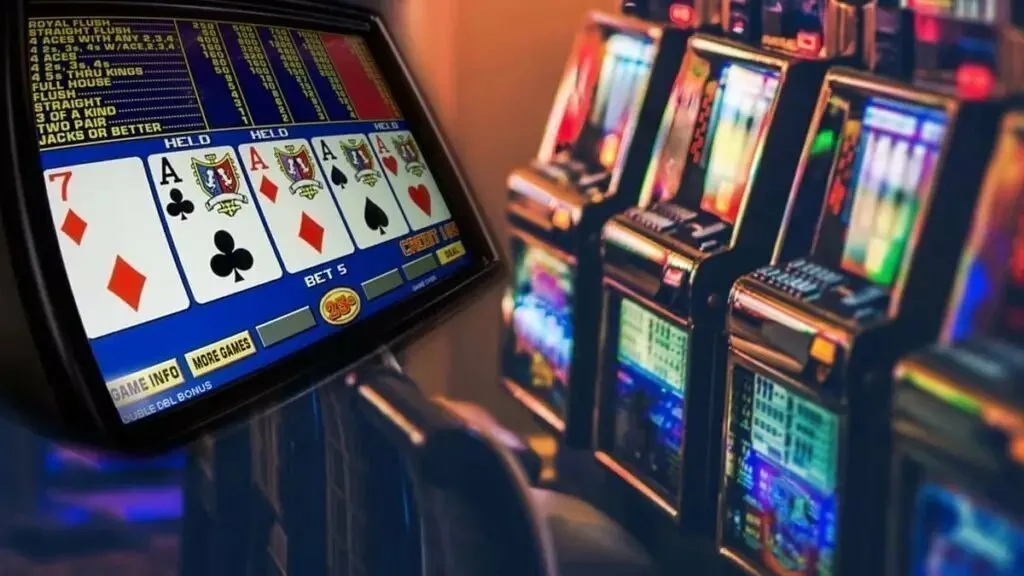The initial stage of mastering gambling platforms is always associated with risks. Lack of understanding of basic principles leads to loss of funds, profile blocking, and other undesirable consequences. To figure out how a novice can start playing at an online casino without major mistakes, it is important to analyze common errors and establish a safe behavior strategy on the platform.
License, Jurisdiction, and Security: How to Choose an Online Casino?
One of the most common mistakes is choosing a platform without a valid license. In the absence of a regulatory body – for example, regulators like Curacao, Malta, or Gibraltar – the user is not legally protected. Documentation verification is done through public registries. A legal operator provides access to original software, fair draws, and the ability to contact support in case of disputes.
At the initial stage, when deciding how a novice can start playing at an online casino, it is necessary to check the license number, company name, validity period of the permit, and country of registration. The choice of jurisdiction affects not only security but also financial transactions – from deposits to withdrawals.
Registration Mistakes: Fake Data and Multi-Accounts
The next vulnerable moment is filling out the form and creating an account. Many users provide false information hoping to remain anonymous. This leads to the impossibility of passing verification at an online casino, which is considered mandatory for fund withdrawal.
It is also prohibited to create duplicate profiles: upon detection of such actions, the operator may permanently block all activity, even canceling any winnings.
To understand how a novice can start playing at an online casino correctly, one should immediately adhere to honesty, use real documents, and carefully check the information entered.
How to Register at a Casino: Tips for Beginners Before Starting
The registration process requires a step-by-step approach. After choosing a platform with a reliable license, you need to:
- fill out the form with personal data;
- confirm contact information;
- study the rules and user agreement;
- activate bonuses if offered at the start;
- pass verification at the online casino by uploading documents.
Ignoring any of these steps in the future results in restrictions on withdrawals, lack of support, or automatic loss of privileges.
How a Novice Can Start Playing at an Online Casino: Common Mistakes at the Beginning
Most problems arise at the moment of the first bets. Novices make typical mistakes that can be easily avoided. Below are the most common ones:
- placing bets without studying the rules;
- ignoring bonus wagering conditions;
- not paying attention to the slot’s RTP or format;
- depositing a large sum immediately;
- starting without a strategy and bankroll management;
- neglecting the demo mode, not testing the mechanics;
- not reading the withdrawal conditions, especially for bonus funds;
- not monitoring deposit limits;
- trusting unverified sources and schemes;
- choosing high volatility slots without understanding the risks;
- not controlling the session duration;
- not paying attention to the behavior of customer support and service responsiveness.
Each of these points affects the perception of the platform, the speed of losses, and confidence in actions. To understand how a novice can start playing at an online casino with minimal risks, it is important to avoid the listed situations from the very beginning.
What You Need to Know Before Choosing a Format?
The variety of formats requires an individual approach. Understanding where to start and what to focus on is aided by basic information about the most popular directions.
Roulette: Clarity and Control
Roulette remains one of the best options for those learning how a novice can start playing at an online casino without complex preparation. The European version is especially recommended – having a single zero reduces the platform’s advantage.
The ability to combine bets (on numbers, even/odd, sectors) allows varying the level of risk. Understanding probabilities and systematizing the approach play an important role when transitioning from demo mode to real money bets.
Blackjack: Simple Strategy and High RTP
Blackjack is popular due to clear rules and a basic strategy that mathematically minimizes the operator’s advantage. With a proper tactic, the player’s return can exceed 99%.
The question of how a novice can start playing at an online casino is logically resolved through studying decision tables and controlling emotions. It is important to choose an option without additional bets and unnecessary features that may confuse a novice.
Poker: Dynamics, Control, and Competition
Poker requires more advanced preparation. Success here depends not on a generator but on skills, psychology, and experience. Novices need to master combinations, principles of play, and observing opponents.
When considering how a novice can start playing at an online casino, it is important to note that poker is not a format for impulsive behavior: discipline and analysis are the basis for winning.
Slots: Visual Thrill but Minimal Control
Slots are the most accessible but least controllable segment. The level of RTP, volatility, the presence of bonus features – all affect the outcome. Beginners often make the mistake of assuming that slots “pay out on a schedule.”
How to Avoid Withdrawal Issues and Play Casino Games for Profit?
The inability to withdraw winnings is one of the most painful situations for a novice. To prevent this, it is necessary to:
- pass verification at the online casino in advance;
- use the same method for deposit and withdrawal;
- not exceed the limits specified in the terms;
- not activate multiple bonuses in a row without wagering;
- not try to bypass the rules by creating new accounts.
If everything is done correctly, the withdrawal process takes from a few hours to a couple of days, depending on the payment method and the operator’s jurisdiction.
Signs of Gambling Addiction and When to Stop
Increasing tension, loss of control over bets, aggression after losses – signs of addiction. It is important to start with awareness: gambling platforms are not intended for stable income.
A novice who wants to understand how to start playing at an online casino safely should learn to say “stop” at the right moment. Using limits, journals, and breaks are the first steps towards stability.
Conclusion
The path of a novice in the world of gambling platforms begins with discipline. Understanding the structure, a careful approach to each step – from registration to withdrawal – and the ability to control behavior help avoid critical mistakes.
Practice shows: those who initially ask themselves how a novice can start playing at an online casino correctly, in the long run, lose less and gain a more stable experience.







 Scammers often disguise themselves as legitimate platforms. The rules for choosing an online casino help distinguish them based on several signs.
Scammers often disguise themselves as legitimate platforms. The rules for choosing an online casino help distinguish them based on several signs. Choosing the right online casino begins with an objective assessment of key platform parameters. These steps will help quickly distinguish reliable sites from potentially dangerous ones:
Choosing the right online casino begins with an objective assessment of key platform parameters. These steps will help quickly distinguish reliable sites from potentially dangerous ones:
 A functional and user-friendly interface is not just aesthetics but also speed of access to the game, the ability to control sessions, and avoid accidental bets. For beginners, the rules for choosing an online casino include clear navigation: personal account, balance, transaction history, customer support.
A functional and user-friendly interface is not just aesthetics but also speed of access to the game, the ability to control sessions, and avoid accidental bets. For beginners, the rules for choosing an online casino include clear navigation: personal account, balance, transaction history, customer support. A newcomer to the online casino industry should act like an analyst. Evaluating the license, withdrawal conditions, platform reliability, and real reviews replaces intuition. A mistake at the start easily turns excitement into disappointment. Therefore, the rules for choosing an online casino for beginners are not a list of restrictions but a step-by-step guide to safety, convenience, and stable profit.
A newcomer to the online casino industry should act like an analyst. Evaluating the license, withdrawal conditions, platform reliability, and real reviews replaces intuition. A mistake at the start easily turns excitement into disappointment. Therefore, the rules for choosing an online casino for beginners are not a list of restrictions but a step-by-step guide to safety, convenience, and stable profit.
 The second element is the percentage of payouts to the player. This indicator doesn’t reflect a specific winning probability, doesn’t predict the result of a single session, but demonstrates the long-term return from bets.
The second element is the percentage of payouts to the player. This indicator doesn’t reflect a specific winning probability, doesn’t predict the result of a single session, but demonstrates the long-term return from bets. Understanding the difference between RNG and RTP forms the basis of fair gameplay principles. One indicator is responsible for instant results, the other for mathematical perspective. Together, they create a balanced and transparent system where manipulations are excluded. Here, each spin is the result of a precise algorithm, not someone’s will.
Understanding the difference between RNG and RTP forms the basis of fair gameplay principles. One indicator is responsible for instant results, the other for mathematical perspective. Together, they create a balanced and transparent system where manipulations are excluded. Here, each spin is the result of a precise algorithm, not someone’s will.

 Most licensed platforms use similar document requirements. The list is standard but with nuances:
Most licensed platforms use similar document requirements. The list is standard but with nuances: To successfully pass verification, it is important to follow a clear order. The algorithm works in any licensed system. You need to:
To successfully pass verification, it is important to follow a clear order. The algorithm works in any licensed system. You need to:
 Platforms do not rely on guesswork — an automated system analyzes every user’s step in real time. Violations are recorded based on specific digital signs, eliminating subjectivity.
Platforms do not rely on guesswork — an automated system analyzes every user’s step in real time. Violations are recorded based on specific digital signs, eliminating subjectivity. Multi-accounts in online casinos violate rules and break the trust system. Algorithms quickly detect duplicates, initiate verification, and block accounts. Attempts to deceive deprive of winnings and access to the platform. Such accounts do not bring benefits — they only lead to exclusion.
Multi-accounts in online casinos violate rules and break the trust system. Algorithms quickly detect duplicates, initiate verification, and block accounts. Attempts to deceive deprive of winnings and access to the platform. Such accounts do not bring benefits — they only lead to exclusion.






